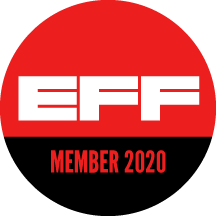Our celebration of this country’s independence is opening up a lot of reflection about the information and communication medium known as the Internet. Mainly because there are people out there who are trying to control it for their own purposes while espousing about the safety of the collective. Using the current onslaught of what many governments are calling digital terrorism, certain entities feel that this medium should only be provided as a controlled privilege that people should pay for (which we already do). What they propose goes against everything that the Internet stands for.
The people who are perpetrating this “threat” are known as hackers, and are fast becoming one of the loudest voices demanding a truly free world democracy. Not free as in the sense of money, but free as in the sense of a true digital democratic community that benefits all. They’re using the language of the Net to fight against the language of politics. Many of these individuals can be seen as similar to those revolutionaries who fought for our country’s right to exist when we were but colonists of the motherland. At that time, our forefathers were also considered to be terrorists. Only because our nation succeeded did they become heroes and an inspiration for an ideology called democracy. Some won’t agree with the hacker’s methods, but no one can argue with their intent. The Internet is being used to bring democracy throughout the world by providing a way to fight against tyranny in its most basic form. The Net is the purest form of a democracy that we seek because privilege doesn’t exist.
Some history: The Internet came into existence in the 1960’s with the most basic of intentions, which was to provide a strong, reliable communication network (specifically for the military) in the event of a worldwide catastrophe. The 1970’s brought telephone connectivity to this fledgling online network. Just like the telephone and telegraph of old, these Internet creators made a platform that allowed some people to stay connected under any circumstance. In 1985, the National Science Foundation along with many universities created the second set of communication arteries and expanded the Internet’s community exponentially. But it wasn’t until the 1990’s, when commercial entities saw a new purpose and opened this medium to everyone and formed the Internet that exists today. A lot has happened between each iteration, but the purpose remained the same: allowing people to communicate in a single online community.
While we can thank these initial pioneers for creating the backbone of this medium, we have to remember that it is the people who made the Internet (or World Wide Web) that we use everyday. People had information that they thought would benefit mankind at large. Some of this information was important, while some was debatable. But that is what the online information started: an open debate that brings opportunity for innovation to anyone who connects. The information that exists on the Net belongs to mankind. No one person or commercial entity should be allowed control, because no single person or entity has the wisdom required to protect this community’s integrity. Only the collective wisdom of all mankind can ensure the safety of this online democracy. The Net is now the largest community in existence, except its form is made up of bits of data. Just like those bits of data need to combine to form a coherent Net, the community must remain open and free to connect to ensure its continued existence. Anything less is wrong.
Our world now feels truly connected because physical distance is a thing of the past, and walls have tumbled. What we experience with the Internet must closely resemble what astronauts see from space. An earth with no geographical boundaries, and a planet with no limitations. The Internet is mankind’s repository of knowledge both good and bad. It tells the story of mankind’s evolution on this fragile planet. That story will always find its way into the light, no matter what barriers are erected to prevent it. The Internet ensures our existence as a species.





